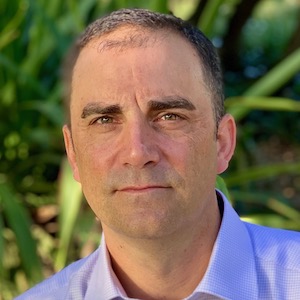
The healthcare industry is a wellspring of data, from electronic health records to data from wearables, health insurance claims, and a multitude of real-world data (RWD) points. While RWD has been utilized to improve drug discovery and clinical services, recent technological advances in data management, artificial intelligence, and bioinformatics are beginning to reveal its transformative potential in healthcare, especially within precision medicine. As the industry seeks to employ new strategies that combine RWD’s statistical power with modern data monetization models, the result will benefit us all in accelerating advancements in patient care and treatment.
The Role of Real-World Data in Precision Medicine
Precision medicine aims to customize healthcare based on individual variability in genes, environment, and lifestyle, yet achieving this goal requires comprehensive and diverse data. Traditional clinical trials, though rigorous, typically lack diversity, restricting patient representation. In contrast, RWD sources reflect a broader range of real-life settings, capturing diverse patient demographics and variations in care practices. This diversity enables RWD to offer invaluable insights into real-world health scenarios, giving researchers data-rich and representative perspectives.
Statistical Power and Diversity in Real-World Data
While randomized clinical trials remain the gold standard in evidence-based medicine, they face notable limitations in representing the diversity of real-world populations. Clinical trials often recruit highly-specific patient groups, leaving out many underrepresented populations, such as certain ethnicities, age groups, and patients with comorbidities. This narrower focus can limit the applicability of trial findings, making it challenging to generalize results for broader patient groups and ultimately reducing their relevance in real-world medical practice.
In contrast, RWD captures a larger and more diverse patient pool, providing greater statistical power and making healthcare insights more applicable across a wider demographic. By including a broad range of demographic, socioeconomic, and health-related factors, RWD reflects the realities of diverse patient populations more accurately, ensuring that medical insights and decisions can better serve various patient groups.
The statistical power of RWD also yields more stable findings, enabling researchers to estimate heterogeneity of treatment effects (HTE) across varied demographic and clinical profiles. HTE analysis allows researchers to link treatment outcomes to specific patient characteristics, such as age, genetic profile, and pre-existing conditions. This insight ultimately supports precision medicine by enabling therapies to be tailored more closely to individual patient profiles. Such nuanced, individualized understanding is particularly valuable in cases where traditional trials fall short, such as for rare diseases or underrepresented populations.
RWD’s robust data coverage allows research teams to analyze extensive data points to refine personalized treatment approaches based on factors including genetic markers, medication response, and other specific patient attributes. This approach moves beyond generalized treatment protocols, instead offering a targeted path that aligns closely with each patient’s unique characteristics. By capturing data from real-world settings, RWD provides insights that are directly relevant to everyday clinical practice, helping healthcare providers align therapies more effectively with actual patient needs and improving treatment outcomes across diverse populations.
Enabling Secure Data Access through Federated Models
As the limitations of traditional data monetization approaches become more apparent, federated data access models have emerged as a promising alternative. Unlike centralized models, where data is transferred to a single repository, federated models enable data custodians to retain data within their own infrastructures, providing enhanced visibility into data usage and minimizing privacy risks associated with data transfer. This “local-first” framework allows organizations to maintain greater control over data access parameters and to monitor how data insights are generated without relinquishing ownership of raw data.
Federated data access models allow data custodians, such as health systems and molecular labs, to collaborate securely with data consumers—like pharmaceutical companies and research institutions—by sharing aggregated insights rather than raw data. By keeping data localized, federated models help to significantly reduce re-identification risks, ensuring regulatory compliance and privacy protection. This decentralized approach also mitigates security vulnerabilities inherent in centralized storage models, where a breach in a single repository could expose extensive sensitive information.
Federated models address many of the critical limitations of centralized approaches by allowing data custodians to monetize their data assets without sacrificing data control, security, or privacy. This structure enables ongoing collaboration, allowing custodians to support research and development while establishing a more sustainable, compliant revenue stream. In doing so, federated data models create a privacy-centered, flexible environment that empowers custodians to leverage valuable data insights responsibly.
Real-world data represents a powerful new frontier for healthcare. By capitalizing on the statistical strength of diverse, representative datasets and adopting federated network models, healthcare organizations can unlock unprecedented insights and build personalized care pathways. With these advancements, RWD has the potential to redefine precision medicine, delivering treatments that align with each patient’s unique profile and needs.
About Noah Nasser
Noah Nasser is CEO of datma, a leading provider of federated Real-World Data platforms and related analytical tools. With more than twenty-five years of experience in biotechnology, Noah brings a broad background in developing and commercializing novel technology to advance human health, including serving as the CEO of Serimmune and Chief Commercial Officer roles at Human Longevity and Counsyl. Noah led Counsyl’s commercial team through its acquisition in 2018 by Myriad Genetics. He previously held senior leadership positions at AltheaDx and Verinata Health, a leader in non-invasive prenatal testing (NIPT), where he led his team through the company’s 2013 acquisition by Illumina. He holds a B.S. from the University of California, San Diego in Molecular Biology.
